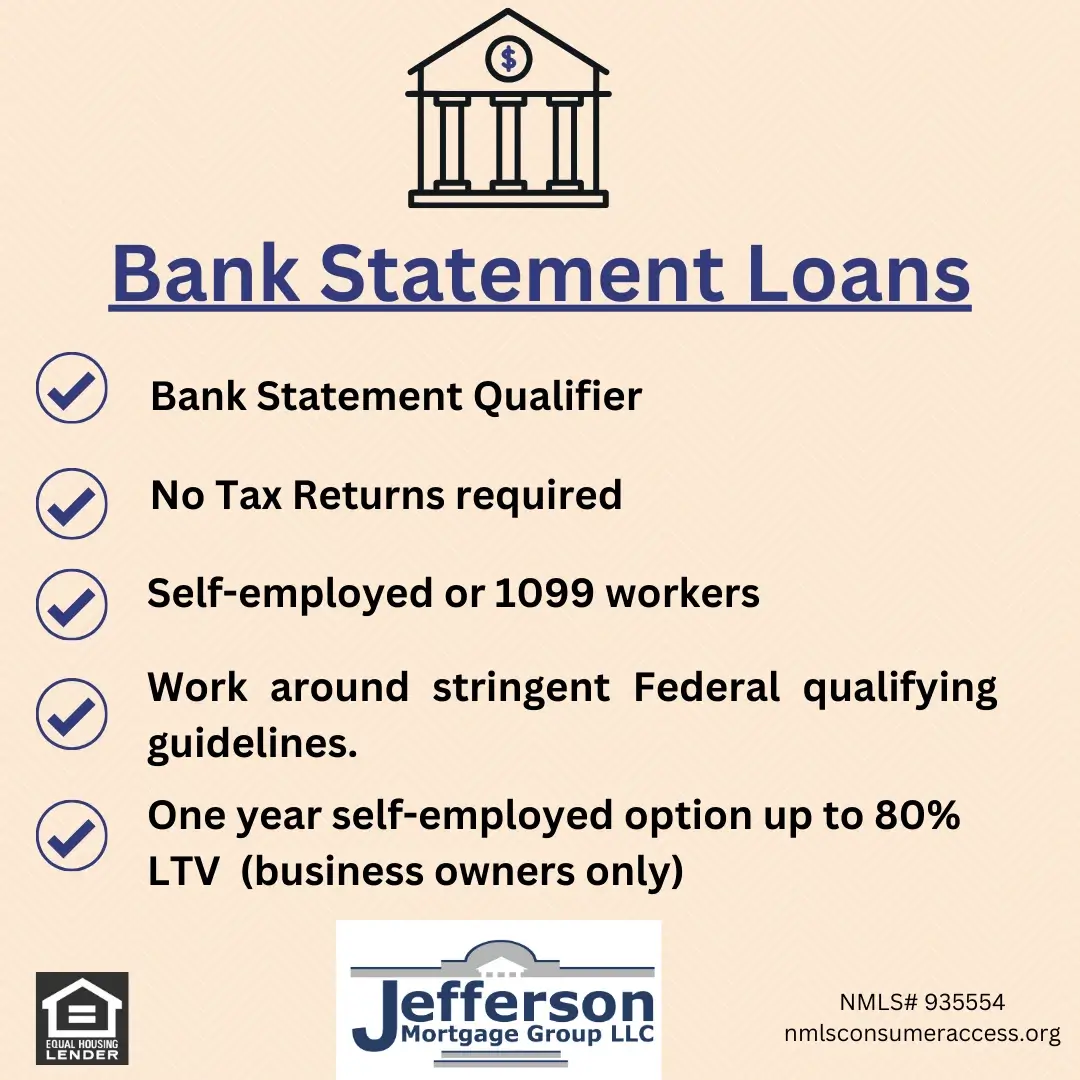

What do these Bank Statement programs do and how do they work? These programs represent a work-around of the stringent Federal “Ability to Repay” (ATR) rules that govern standard full documentation qualifying guidelines. This program is available for seasoned business owners and eligible contract employees. The program looks to substitute business income derived from twelve months of consecutive banks statements in lieu of Federal Tax Returns. In other words, bank statements don’t lie. Business income can be isolated and gross business cash flow can be created for analysis directly from the monthly statements to create a twelve-month moving average. From this point, an expense ratio for the business type can be applied with the assistance of a company accountant. This will provide a documented level of monthly net income for the business. Once the business monthly net income has been established, we will then usually use a 50% factor of that income to allow for the new housing payment (PITI) plus all other monthly debts to establish qualification. This is an accepted basis for determining eligible income at the Federal level whereas a self-employed individual may not otherwise qualify for a mortgage if the sole requirement included tax returns. It’s clearly a Federal workaround that meets all the requirements of the ATR rule. It takes some expertise to guide a borrower through the eligibility process but the end result is often access to a competitive mortgage and the ability for a borrower to continue to operate their business exercising the leverage they employ within the tax system from day one when they started the business and hired the accountant for property tax strategy.
When does the Bank Statement program make the most sense? The best application is for solely owned businesses with owners with solid credit. Partially owned business owners may still apply but that adds to the complexity and we can only use income based on the documented percentage ownership of a given business. This program also accommodates 1099 paid contract employees. Business income will again be isolated in the same fashion although it may be from twelve months of personal bank statements.
A borrower with solid credit, high scores and sufficient liquid verifiable funds for down payment, closing costs and usually a minimum of six months PITI reserves for the new property are often the best candidates but let’s not shortchange a worthy entrepreneur. For an otherwise eligible borrower, this program has a very aggressive feature that will allow for self-employed business owners that have only been self-employed for a minimum of one year. This is a terrific feature albeit with a slightly different set of review criteria to insure we have an eligible borrower that can thrive in their ambitions and successfully make the mortgage payment. Our job is to introduce these specialized mortgage programs and apply our expertise to help you find the best mortgage for your circumstance and your path to loan eligibility.
George H. Omilan
President-CEO - NMLS# 873983
Jefferson Mortgage Group LLC - Mortgage Specialist
Programs: Traditional QM (Fannie Mae, Freddie Mac), government insured HECM Reverse Mortgages, and Non Traditional Non QM Mortgages commonly referred to as Specialized Forward Mortgages including “Alt-A Investor loans” and DSCR (Debt Service Coverage Ratio) loans up to 85% LTV, both Full doc and No Income-No Employment (No Doc) for the investor community. Our expanded niche products also focus on the more traditional FHA & VA with Lower Score and higher Debt-to-Income Options, Fixed & Variable Jumbo loans, and Private Label Reverse mortgages for higher priced homes. We are also highly focused on specialized loans for the Self-Employed borrowers with our Bank Statement & Asset Dissipation Programs. We are committed to offering a full range of “Non-QM Loans” for expanded qualification, where the banks and large-scale lenders dare to go.
